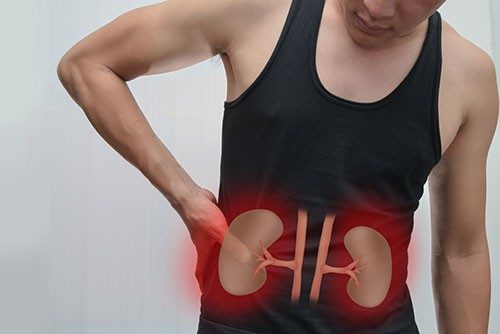FOR IMMEDIATE RELEASE
ACS News Service Weekly PressPac: January 05, 2022
Immuno-CRISPR assay could help diagnose kidney transplant rejection early on
"Highly Sensitive Immuno-CRISPR Assay for CXCL9 Detection"
Analytical Chemistry
When a patient receives a kidney transplant, doctors carefully monitor them for signs of rejection in several ways, including biopsy. However, this procedure is invasive and can only detect issues at a late stage. Now, researchers reporting in ACS’ Analytical Chemistry have developed a CRISPR-based assay that can sensitively and non-invasively detect a biomarker of acute kidney rejection in urine. This could someday help diagnose rejection earlier and without a biopsy.
Kidney transplant recipients must take immunosuppressant drugs for the rest of their lives to help keep their immune systems from attacking the foreign organ. However, kidney rejection can still occur, particularly in the first few months after transplantation, which is known as acute rejection. Signs include increased serum creatinine levels and symptoms such as kidney pain and fever. Currently, the only way to definitively diagnose it is through biopsy, but this procedure can only detect problems at a relatively late stage. Being able to sensitively and non-invasively diagnose kidney rejection at an early stage would allow doctors to begin anti-rejection medication sooner. Researchers previously found that high levels of a cytokine protein called CXCL9 in the urine of kidney transplant patients was an early warning sign of rejection. But the current method for measuring CXCL9 (an enzyme-linked immunosorbent assay, or ELISA) doesn’t work very well in urine, limiting its sensitivity. So, Jonathan Dordick and colleagues wanted to develop a more sensitive technique for non-invasively diagnosing acute kidney rejection from urine.
The researchers based their detection method on CRISPR/Cas12a gene editing technology. In the presence of the CXCL9 protein, the CRISPR/Cas12a enzyme cuts a probe to produce a fluorescent signal. The researchers boosted the fluorescent signal by attaching a DNA barcode that aggregates a large number of CRISPR/Cas12a molecules, and is subsequently bound to an antibody that recognizes CXCL9. Importantly, unlike other CRISPR-based detection methods, PCR amplification is not required, which makes the method easier to adapt to a device that could be used in a doctor’s office or even a patient’s home. When tested on urine samples from 11 kidney transplant patients, the new system accurately measured CXCL9 levels, with values very similar to an ELISA. However, because the immuno-CRISPR system is about 7 times more sensitive than an ELISA, it might be able to detect kidney transplant rejection at a very early stage, the researchers say.
The authors acknowledge funding from the National Institutes of Health.
###
The American Chemical Society (ACS) is a nonprofit organization chartered by the U.S. Congress. ACS’ mission is to advance the broader chemistry enterprise and its practitioners for the benefit of Earth and all its people. The Society is a global leader in promoting excellence in science education and providing access to chemistry-related information and research through its multiple research solutions, peer-reviewed journals, scientific conferences, eBooks and weekly news periodical Chemical & Engineering News. ACS journals are among the most cited, most trusted and most read within the scientific literature; however, ACS itself does not conduct chemical research. As a leader in scientific information solutions, its CAS division partners with global innovators to accelerate breakthroughs by curating, connecting and analyzing the world’s scientific knowledge. ACS’ main offices are in Washington, D.C., and Columbus, Ohio.
To automatically receive press releases from the American Chemical Society, contact newsroom@acs.org.
Note: ACS does not conduct research, but publishes and publicizes peer-reviewed scientific studies.
Media Contact
ACS Newsroom
newsroom@acs.org


